Paul Kent: Grand final advice from the greats
A few simple words can make all the difference between winning and losing grand finals. Jack Gibson was the master, but not everyone hit the right note, writes PAUL KENT.
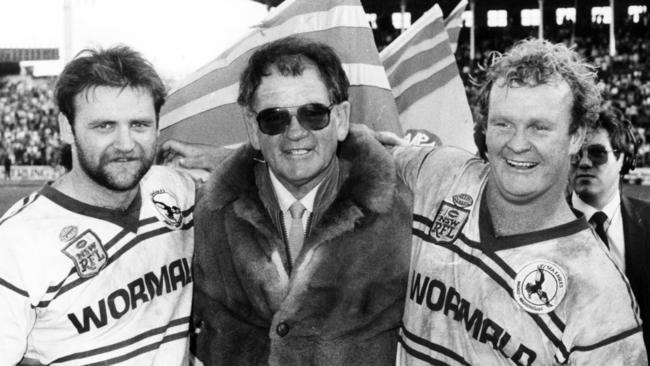
NRL
Don't miss out on the headlines from NRL. Followed categories will be added to My News.
Winning starts on Monday, said the master coach Jack Gibson, which as memorable quotes go is up there with ‘Winning isn’t everything, it’s the only thing’, or ‘There’s a reason you don’t give machine guns to monkeys’.
Jack Gibson was good for many things, but he excelled in two particular areas, wise advice and winning.
One evening, for instance, so far as Gorden Tallis can remember it was the night before Brisbane played Canterbury in the 1998 grand final, Jack gingerly sat down next to Tallis at the hotel buffet in Bondi and began picking at his food.
In those days Gibson and his offsider Ron Massey were regulars inside the Broncos camp, guests of the coach, and while Jack was in the early stages of the dementia that finally killed him, Massey was in the early stages of slaying the buffet.
He could eat for Australia, Massey.
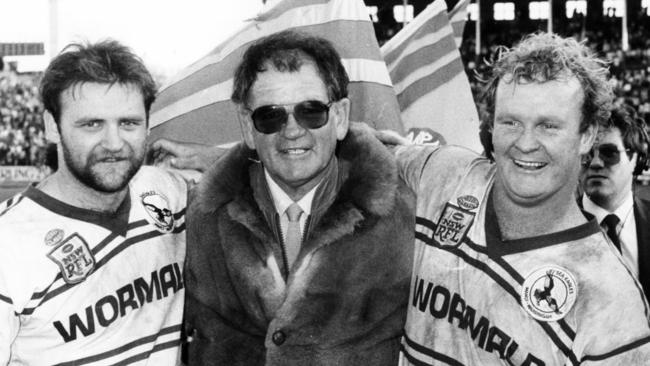
Tallis knew the reputation, if not the man, and unaware of Jack’s sickness, he initially thought his silence was rudeness. But he plucked up the courage anyway and asked Jack a question.
“Have you got any advice for me?”
Jack turned stiffly, his shakes already slowly beginning to attack him.
“Make your first play your best,” he said, before returning to his meal.
It lived with Tallis forever, that piece of advice.
Cooper Cronk played nine grand finals and knows a thing or two about winning grand finals. Over time his preparation changed, the maturing of the athlete.
“Out of the grand finals I played, I reckon when I was a young kid I had a mindset of hoping I win,” he said.
“In the middle bracket I wanted to be the best player. By the end though, I wanted to do whatever it takes to make my teammate the best player. So that’s probably it.”
Winning is a temperament in Cronk’s world, as it is with most winners.
The good winners know how to get themselves right, mentally speaking, for their best performance when it matters.
And Monday comes before Sunday.
“You can’t play the game before the game, because that’s what happens,” Braith Anasta said. “[Nathan] Cleary said this week, ‘I’m going to stay in the moment’, that’s the key.”

Anasta won his premiership for Canterbury in 2004, Paul Langmack 20 years earlier, but the advice was the same.
Langmack learnt his preparation from the Mortimer brothers, Steve, Peter and Chris, when he made his first grand final in 1984.
“They played in the ’79 and ’80 grand finals and learned it there,” Langmack said.
“They’d say, ‘Don’t play the game in your head, you’ll get too tired. Just try and build up and build up so by Sunday your emotions are at the highest they have been all week’.
“That’s what the Mortimers taught me.”
And because he feels uncomfortable when he is not talking, Langmack continued, pointing at how Parramatta blew it against Newcastle in 2001, going off too early.
“Parramatta were nervous before the Grand Final Breakfast and the Knights were lapping it up,” he said. “That’s why they smashed them.”

The Eels have a bad history of blowing grand final preparations, even though it must be said coach Brad Arthur has appeared pitch perfect this week.
The Eels got so excited at making the 1976 grand final the city held a celebratory street parade, players in cars, thousands turning out.
Problem was, it was several days before the grand final.
Preparation is a personal thing.
Head Noise: a podcast from James Graham
The good coaches identified this and, sometimes, the advice took a strictly personal nature.
“Sheensy [Tim Sheens] always used to say to me, ‘Just get your defence right’,” Laurie Daley said. “Your running game will come and it always comes off the back of you getting your defence right’.”
Much like he did as a player, Andrew Johns finds answers even when he doesn’t think he has.
“Ricky Stuart used to say to me, ‘In big games just stay out of the game for the first 10 minutes,” Johns said. “Kick, support … kick, support’. But for grand finals, I can’t think of anything profound.”
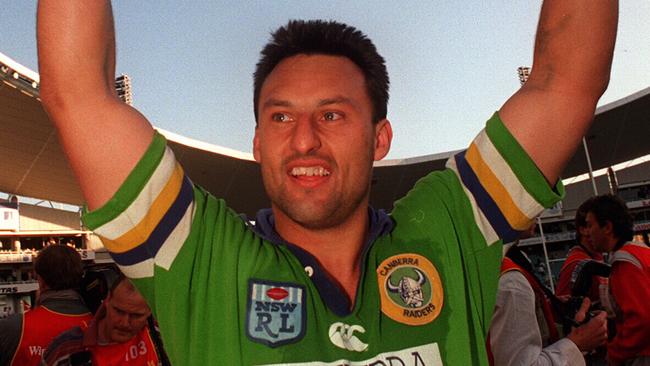
Some advice is easy, which disguises how hard it is.
“No one gave me any advice,” Craig Gower said. “Except just win the thing.”
After the Panthers qualified for the 2003 grand final, Gower and Scott Sattler went to coach John Lang to hit him up for advice on what they might need to do differently to beat the Roosters.
Lang paused, then asked them to give him a day to come up with something.
The next day they gathered.
“I’ve watched their video and the Roosters keep it pretty simple,” Lang said.
“They run hard and tackle hard.”
Sattler and Gower looked at each other.
“So how are we going to beat them?”
Lang was quick in response.
“We’re going to run harder and tackle harder.”
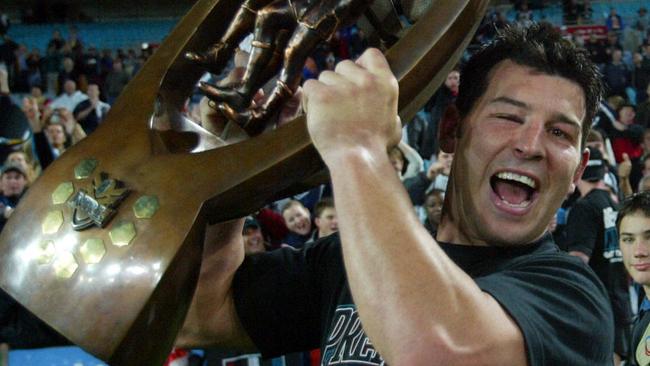
Les Boyd played only one grand final and it was a losing one, to Parramatta in 1982, so his mind naturally steered towards the worst advice he got.
“The worst advice was Ray Ritchie ran us in the mud for four hours before we played in the 1982 grand final,” Boyd said.
“I’d say the best advice is play your best game. There’s nothing worse than getting beat and not playing as well as you can.”
Like Boyd, Steve Roach is similarly scarred. His most vivid memory of the 1989 preparation, perhaps the greatest grand final of all, still confuses him.
“The Wok [Warren Ryan] brought in a gridiron video into the sheds before the game,” he said. “It was weird.”
Robbie Farah and Tallis are old sparring partners, but Farah credits Tallis for playing a part in the Wests Tigers’ once-in-a-generation run at the 2005 premiership.
It wasn’t Jack’s advice.
“At the start of the finals series, I think it was at the Dally Ms, and I was speaking to Gordie, and he said, ‘There’s always momentum swings and the team that can hang in when momentum is against them wins the game’,” Farah said.
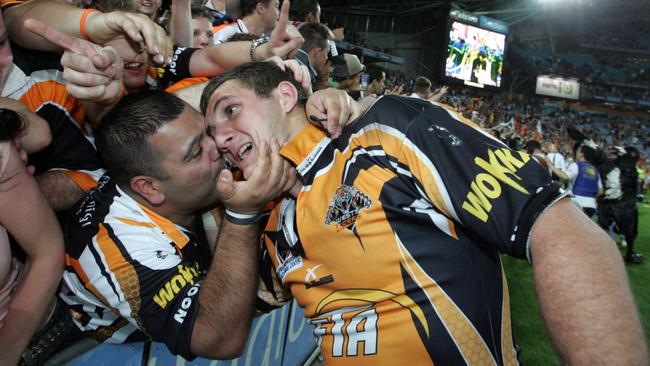
“I vividly remember thinking about that when momentum was against us.”
Jack was the master, still considered the original and the best, even if all his quotes were not exactly what you might call original.
“It’s funny what you remember,” said Mick Cronin, who played under Jack in Parramatta’s first premiership in 1981, as well as the two that followed.
“When I was coaching Gerringong the first time in the grand final, I knew they weren’t listening to me. So I said to them, ‘I’m going to tell you something Jack Gibson said to us before we ran out for the first half in the grand final against Newtown’.
“It’s the only time I got them to listen.
“I said, ‘See ya’s at halftime’.”
SHORT SHOT
Parramatta’s snub at the Dally M Awards reinforces their unfashionable tag, and might actually justify what the club is trying to achieve.
Not one Eel made the Dally M Team of the Year and while it might look like a slight on the grand finalists, and has been taken that way in some parts — all while opponents Penrith have three players awarded — it is exactly the kind of squad the Eels were chasing.
Rather than any kind of insult, it points more to the kind of team coach Brad Arthur has built. Well-balanced, with talent and salary cap investment spread fairly evenly across the squad.
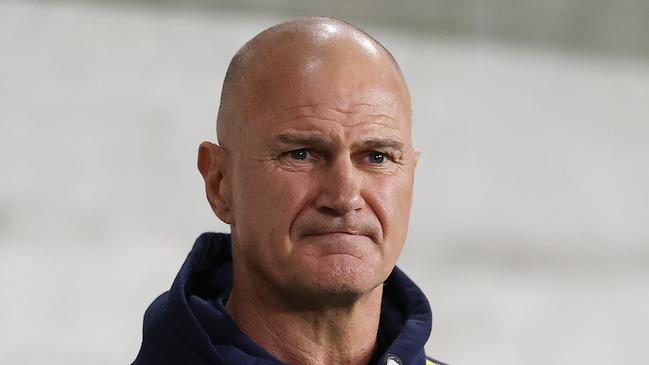
It is not necessarily an insult to say the Eels don’t have the best player in the game at any position on the field, because they don’t.
Even Arthur himself fits the Eels ethos.
He is looking to become the first coach since Jeff Smith in 1948 to coach a premiership-winning team without having played at the elite level.
Smith coached Western Suburbs Magpies to the title.
The last coach to reach a grand final without having played at the elite level was Daniel Anderson, who did it twice with Parramatta (2009) and the Warriors (2002), and before that it was Roy Masters at St George in 1985.
ALL YOUR NRL GRAND FINAL PUNTING NEEDS: BEST MULTIS, CLIVE CHURCHILL MEDAL & MORE
More Coverage
Originally published as Paul Kent: Grand final advice from the greats





